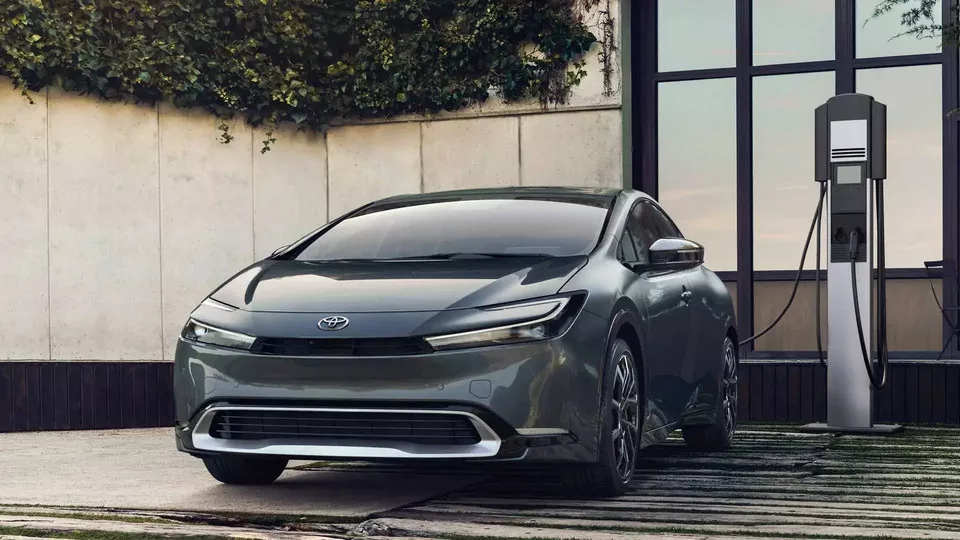
A lot of people are looking to move away from vehicles that run entirely on gasoline. It only makes sense, when gasoline is so harmful to the environment, as well as being increasingly expensive at the pump. However, not everyone is quite ready to jump into Electric Vehicles yet either. Some places in Canada still don't have robust charging facilities, and other people just don't want to wholly rely on batteries for travel.
For these people, there's another option: hybrid cars! In many ways, hybrids are a 'best of both worlds' option, as they include both gasoline and electric power sources. This means you can choose between the power type that works best for you or always have a backup power source on long drives.
However, hybrid cars are also complicated, and there are some serious considerations before investing in one. So, in this guide, we'll go over some of the most important things you need to know about buying hybrid cars in Brockville.
"Hybrid car" simply means that it includes both gasoline and electricity as power sources, but there are actually a few different types of hybrids. Today, these are generally broken down into traditional hybrids and plug-in hybrids. The main difference is simply in which form of power is given priority.
Traditional hybrids can be seen as gasoline vehicles which also make use of electricity, sometimes. They run mostly on gas but use regenerative braking to convert the energy generated by braking into electricity. This goes into a small battery which is used to reduce fuel use over the course of the drive, adding to the overall power supply.
Traditional hybrids must still be regularly gassed up, and generally behave much like any other internal-combustion vehicle. However, you will see much better gas mileage from them compared to gasoline-only vehicles, which significantly lowers their total cost of ownership over time.
Plug-in hybrids (PHEVs) go in the other direction, putting a lot more priority on their electrical system. Like a full EV, they include a charging port and can be charged from most standard charging stations. Electricity is typically seen as the default method of operation, and most PHEVs can be run fully electric for shorter distances. Gasoline is simply used as a backup power supply, or to give the vehicle extra power such as during heavy acceleration.
Some PHEVs even give the driver full control over which power system is being used, allowing you to switch back and forth depending on your own preferences or driving style. Be aware, however, that PHEVs are usually the most expensive type of alt-fuel vehicle. You'll be paying extra for all that flexibility.
Is buying a hybrid car in Brockville a good idea? It's going to depend on your preferences, budget, and driving style.
Any type of hybrid is going to burn far less gasoline than a car with a regular internal combustion engine. This can lead to substantial reductions in your monthly fuel bill, potentially chopping it down by 50% or more. Of course, with a PHEV, this will also be partially offset by the cost of the electricity you put in.
Most electric vehicles today have ranges that are plenty for standard drivers, but that's not always the case. And some people need to do a lot of driving. Hybrids undoubtedly offer superior range, often superior even to regular gas-burning cars. They're a great choice if you never want to be anxious about how far your car can go on a tank of fuel.
Again, most of the power issues with electric vehicles have been sorted out, but the combination of electric gas will yield more power. If you live someplace with a lot of challenging driving situations, you may want the extra power and flexibility offered by hybrids, especially PHEVs.
A hybrid will never be as environmentally friendly as a pure electric vehicle, but they're still a big improvement over regular internal combustion engines. You'll be burning less gas and releasing less emissions, making them a good choice for eco-minded people who still need an internal combustion engine.
Because hybrids include two separate power systems, that makes them more complicated and difficult to manufacture - and therefore more expensive. While you may be able to recoup the difference through reduced gas use, the extra upfront costs will be substantial.
Again, this is the double-edged sword of hybrid technology. Two power systems mean even more components that could fail, and not all car shops will be equipped to handle hybrid repairs. Maintenance over time could easily be more expensive than either ICEs or EVs.
Depending on the body design, there may be less interior space because the electric components are taking up that space. That's not always the case, however, so it's a good idea to look closely at the specs if you're comparing a hybrid against other alternatives.
Hybrids are more environmentally friendly than regular gas burners, but they still do more damage to the environment than a pure EV.
If you're still trying to decide whether a hybrid or EV is right for you, 1000 Islands Toyota is here to help! We have a wide selection of Toyota hybrids and electric cars, and they're all available to test-drive so you can make an informed decision.
To learn more, just visit our lot - or contact us if you have any questions.